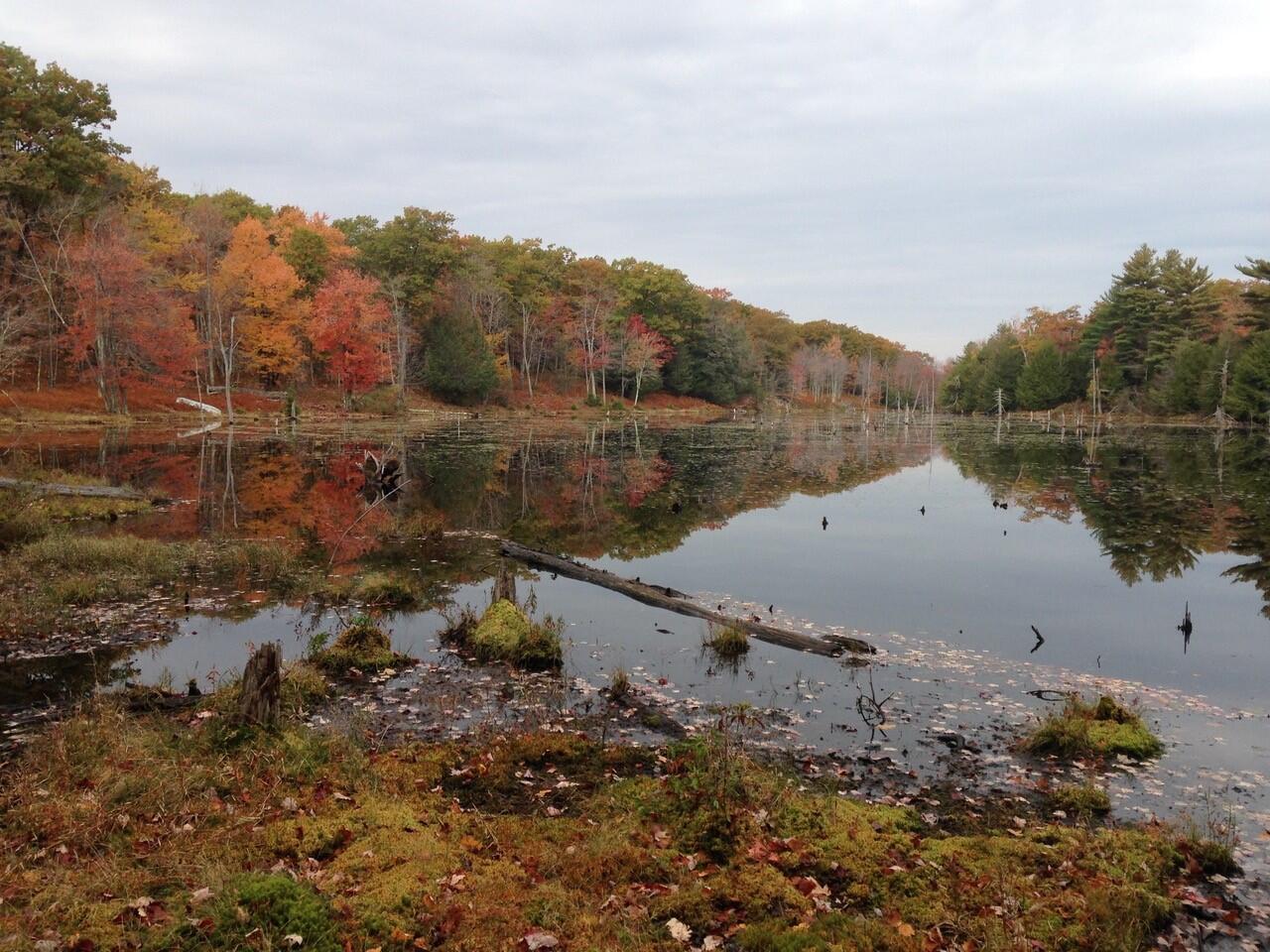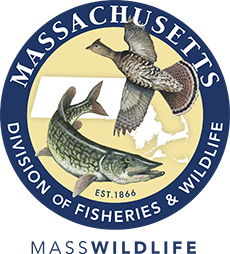- Division of Fisheries and Wildlife
Media Contact
Marion Larson, MassWildlife

In December, MassWildlife acquired a 2,038-acre conservation restriction in Shutesbury, Pelham, and Leverett. The property will continue to be owned and maintained by W.D. Cowls, Inc. of North Amherst as a sustainable working forest. The conservation restriction, sometimes called a conservation easement, permanently protects the property which is made up of several large forested parcels. The acquisition will conserve critical wildlife habitat, safeguard water resources, and ensure continued public access to the property for hunting, fishing, hiking, wildlife watching, and other outdoor recreation. This major land protection project was made possible through a partnership with the Department of Fish and Game, Kestrel Land Trust, W.D. Cowls, and the federal Forest Legacy Program.
More than 95 percent of the Walter Cowls Jones Working Forest, as the property will be called, is identified as Core Habitat or Critical Natural Landscape by MassWildlife’s Natural Heritage and Endangered Species Program and is essential for ensuring the long-term survival of rare and common wildlife. Two reptiles listed under the Massachusetts Endangered Species Act will benefit from the conservation of this property, as will forest birds like the scarlet tanager, blackburnian warbler, and Canada warbler. Visitors may also find common wildlife on the property, such as white-tailed deer, wild turkey, porcupine, snowshoe hare, and ruffed grouse. This sizeable land acquisition benefits mammals with large home ranges such as black bear, moose, and bobcats. The area also includes headwater tributaries that are valuable habitat to coldwater aquatic wildlife.
Protecting this large block of forested lands will help sequester and store carbon and help mitigate climate change. Parts of the property are near other conserved lands including the Quabbin Reservation, Town of Amherst watershed land, Montague Plains Wildlife Management Area, and the Paul C. Jones Working Forest. Connecting large blocks of wildlife habitat provides plants and animals improved ability to adapt to changing climate conditions. The acquisition adds to the more than 220,00 acres of MassWildlife’s Wildlife Management Areas and Wildlife Conservation Easements conserved statewide. Click here to discover MassWildlife lands near you.
